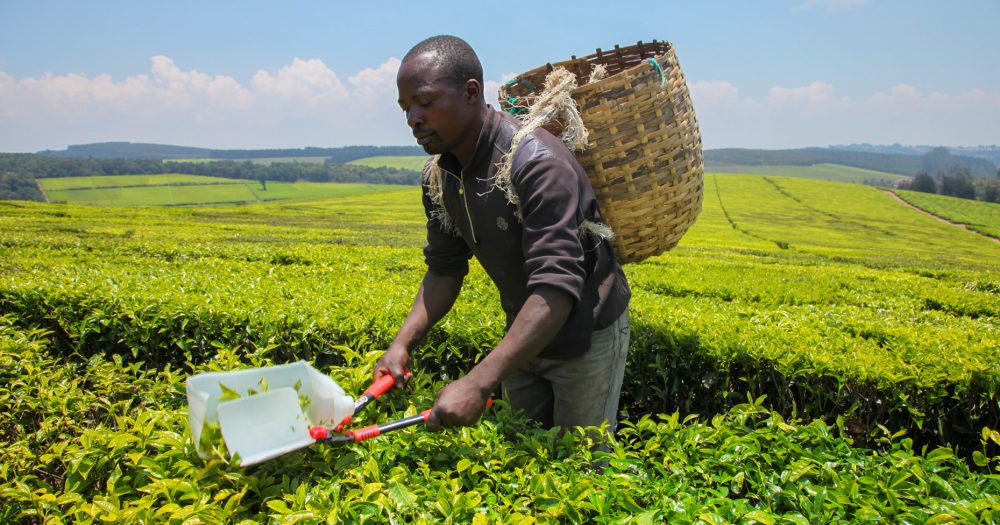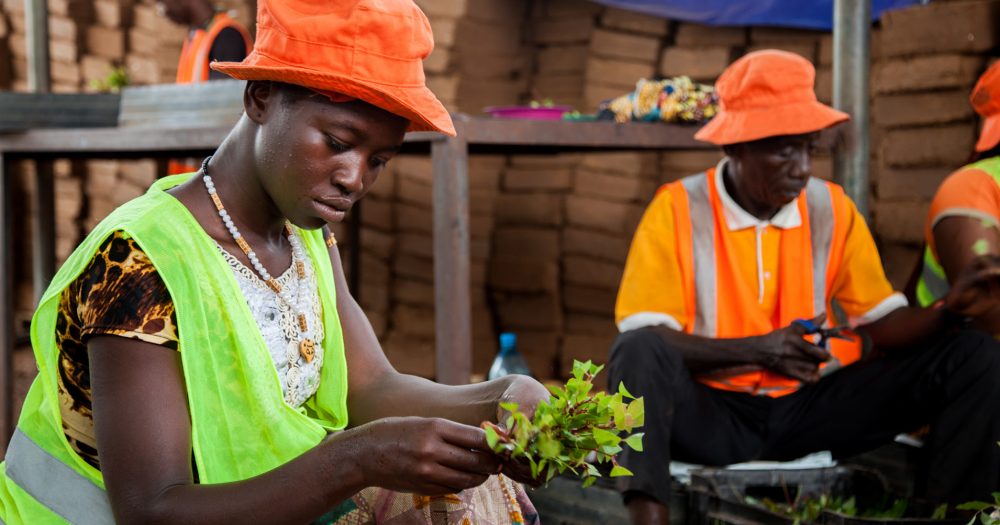This investment was made when British International Investment was named CDC Group.
Our investment
Description of the investment.
Description of the investment.
The investment will drive economic and social transformation at scale in Ethiopia by:
- Improving access, quality and affordability of mobile services by reaching tens of millions of users, many whom would not otherwise have had access. By 2032 the majority will access 4G and mobile money services, whilst benefiting from price reductions.
- Significantly boosting the economy, employment of 7,000 people, productivity improvements for over 1.5 million SMEs and micro-entrepreneurs, and taxes and foreign direct investment.
- Enabling greater social inclusion though the provision of digital services to the most underserved, with 24 million individuals cumulatively accessing these services by 2032.
Impact information
Applies to investments made from 2019 onwards. The tabs in this section define what we expect to achieve through the investment, assessing the potential impact of the investment against six dimensions of impact. You can find more details on our methodology of assessing impact here.
Applies to investments made from 2019 onwards. The tabs in this section define what we expect to achieve through the investment, assessing the potential impact of the investment against six dimensions of impact. You can find more details on our methodology of assessing impact here.
What?
| Impact |
|---|
|
|
|
How?
| Primary | Secondary |
|---|---|
|
Through investment in telecoms licence and capex related to network build-out. This will enable greater coverage, lower prices, better service quality (incl. 2G, 3G and 4G roll-out) and enable more people to connect and improve productive use. |
Investment will benefit the Government directly through licence fee and taxes, as well as job creation (direct and indirect) and increased productivity for SMEs and micro-entrepreneurs. |
Who?
| Stakeholder | Geography | Characteristics |
|---|---|---|
| Customers |
Ethiopia |
Literate citizens able to afford a mobile device and data and voice services. This is currently 46 per cent of the population and will rise to 64 per cent by 2030. We estimate the proportion of customers from disadvantaged backgrounds to increase over 10 years. |
| Citizens, employees |
Ethiopia |
Broadly all citizens will experience a shallow impact from overall economic improvement, with small and micro entrepreneurs benefitting directly. Around 30 per cent of the Ethiopian population currently live on below $1.90/day. |
How much?
| Scale | Depth/Duration |
|---|---|
|
By 2032 this investment will reach tens of millions of customers, of which we estimate at least 14 million are people who would not have accessed mobile without liberalisation. By 2027, around 80 per cent of customers will be accessing data services. Over 24 million people will cumulatively be reached through targeted mobile services in agriculture, health and education. |
We expect the benefits of mobile services to the individual to be deep in Ethiopia given current lack of access and affordability of mobile and data services, and the effects to be lasting beyond our 10 year forecast horizon. |
Contribution/additionality
| Contribution/additionality |
|---|
|
Grid score
| Grid Score
To help us direct our investments, we previously used a tool called the Development Impact Grid. It scored investments out of four, based on two factors: the difficulty of investing in a country and the propensity of the sector to generate employment. This tool was used for investments until the end of 2021. Since 2022 it has been replaced by the Impact Score. |
|---|
4.0 |
Risk
Stakeholder Participation Risk
Unexpected Impact Risk
|
Environmental and social information
-
Environmental and social summary
A high-level description of the environmental and social aspects of the investment. This may include a summary of key environmental and social risks identified during environmental and social due diligence (ESDD); key elements of an environmental and social action plan (ESAP); or ways in which we plan to support the investee improve environmental and social standards, such as through their environmental and social management system (ESMS); as well as any other priority areas agreed with the investee.
-
Environmental and social risk
A risk category rating, which indicates the level of environmental and social risk associated with an investment. For an explanation of the categorisations used, see here. We consistently provide an environmental and social risk category for all investments screened from 2023 onwards.
Environmental and social summary
We agreed an ESAP focused on the development and implementation of an Environmental and Social Management system (ESMS), strengthening of policies and procedures on safe labour and working conditions for workers engaged through third-party, stakeholder management and grievance management and implementation of security management protocols and procedures.
Reporting and Complaints Mechanism
The Reporting and Complaints Mechanism allows anyone outside BII to report alleged breaches of the business integrity or environmental and social provisions of BII’s Policy on Responsible Investing. This includes breaches made by BII, a BII investee, or a portfolio company of a fund in which BII has invested. The Reporting and Complaints Mechanism Rules are available here. Reports and complaints can be submitted by email to reportsandcomplaints@bii.co.uk or by mail. See more details on our Reporting and Complaints Mechanism here.
For any other general enquiries contact us at enquiries@bii.co.uk
-
Key facts
- Last updated
:
When the last quarterly update of the website database occurred.
- December 2024
- Project number
:
An identifier number shared by investments in the same project.
- D3778
- Status
:
The current status of the investment (green flag for active and red flag for exited).
- Active
- Region
:
The geographical region where the country is located. We currently invest in Africa, South Asia, South East Asia and the Caribbean. In 2023, BII’s investment mandate was extended allowing it to invest in regional funds linked to Ukraine, with the majority of activity expected to begin post-war. Investments outside these regions were made prior to 2012 under previous investment mandates.
- East Africa
- Country
:
The countries where the investment delivers impact. Where impact is delivered in multiple countries, this is indicated.
- Ethiopia
- Sector
:
We prioritise those sectors that facilitate development and need our capital the most. Our priority sectors contribute towards many of the Sustainable Development Goals. They range from investing in the power infrastructure that will provide people with better access to electricity, to investing in financial institutions that direct capital to the individuals and businesses that need it the most.
- Technology and telecoms
- Sub sector
:
The sub-sector that the investment is made into; this provides a more granular level of detail than the ‘sector’ information
- IT Services
- Investment type :
- Equity
- Start date :
- May 2021
- Amount :
- $213.5m
- Currency of investment :
- USD
- Domicile
:
The company or investment fund’s place of incorporation.
- Netherlands
We provide capital in the following ways: directly – through direct equity, direct debt, guarantees and other non-intermediated financial instruments; and indirectly – principally through investment funds.
For direct investments and fund investments, this is the date BII committed capital to the investments. This is typically the date on which legal agreements are signed by all parties.
For the portfolio companies of our fund investments, this is the date (either the month or the quarter) on which the fund committed capital to the portfolio company.
For direct equity investments, this is the date at which British International Investment exited the investment.
For debt investments, this is the date at which the final debt repayment was made.
For funds, this is the date at which the fund was terminated.
For underlying fund investments, this is the date at which the fund manager exited the investment.
The total amount committed, per financial instrument, per investment, on the date BII becomes subject to a binding legal obligation to provide funding or assume a contingent liability. This information is provided in US dollars.
For direct investments, this is the amount that BII has committed to the business or project. For fund investments, this is the amount BII has committed to the fund.
The currency in which the investment was made.
- Last updated
Related investments made by BII into this company:
| Investment name | Commitment | Region | Sector | Start date | Status |
|---|---|---|---|---|---|
| Investment 02 | $-20.69m | East Africa | Technology and telecoms | April 2023 | Active |
| Investment 03 | $14.99m | East AfricaEast Africa | Technology and telecoms | April 2024 | Active |


